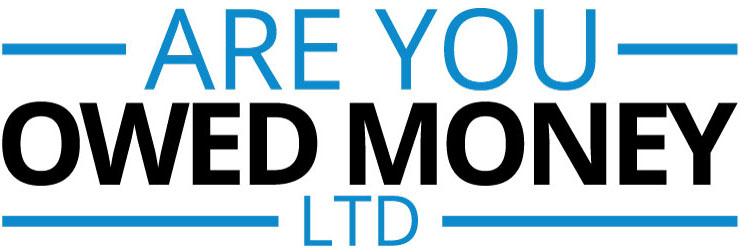Buy now, pay later (BNPL) has become a staple in shopping. It makes purchases less stressful. Get the thing you’re after now and use quick credit to pay when it's best for you. However, one Tory MP wants to take a closer look at the BNPL industry.

An MP speaks
Anthony Browne, member of the Commons Treasury committee, wants to see more regulation. Speaking to peers recently, he stated BNPL is “another gap” which needs sorting out. Browne’s concerns arise from the fear of people getting into insurmountable debt using this method. Currently not regulated by the FCA, it is still a gap in the system which could require more attention.
Continuing his speech to the committee, Browne felt there was a “clear risk of consumer harm” arising from BNPL. Because it is unregulated, there isn’t policing on how thorough companies are checking consumers before offering credit. There is also no penalty for those offering credit to sub-par lenders.
Products such as Klarna and Clearpay have become commonplace in recent years. Their basic products offering pay in 3 instalments or 30 days interest free. For consumers; could be a much better alternative than payday loans. They also offer longer term credit and financing options. It is missing these payment terms however where Browne has concerns. Missing payments on these plans becomes like that of a credit company. Non-payment often results in the introduction of debt collectors.
Browne addressed worries of young people falling into debt via these schemes. While it is an easy option for purchases, without tighter regulation it could lead to more debt. It is at this point the credit switches from "good debt" to "bad debt".
Is buy now, pay later a bad thing?
With BNPL the appeal is obvious. Purchase a product, pay when it’s more convenient. Do you really want that pair of jeans but payday is next week? Get the credit and sort it out on payday. It’s a much simpler and low risk version of the payday loan.
BNPL can be a positive step for the credit industry if managed correctly. By that, we must look at what makes debt “good” debt. To be classified as good debt, a debt must:
-
Be funding a positive lifestyle change.
This could be a new car, new clothes, new appliance that enhances the person’s lifestyle. -
Be comfortably repayable.
The person should be able to repay, regularly, on time without seeking further credit.
Once a debt starts to get beyond a borrower, it becomes bad debt. It is at this point that borrowers may start looking at other avenues of credit. This is the major worry Browne has. He argues people may use BNPL to fund their lifestyle despite not being able to afford repayment. This is especially prevalent when the industry is not yet regulated. While many companies conduct soft credit reports before allowing someone to borrow, this may not be enough.
Citizen's Advice recently conducted research into the industry, looking at the makeup of BNPL borrowers. Their research "showed 42 per cent of those using BNPL are borrowing money just to be able to pay back their commitments". This figure is worrying and while there are benefits to BNPL, we can also see there is a need to take a closer look at how the industry operates and who can access the credit.

Our thoughts
AYOM does not believe BNPL is inherently a bad option for credit. We have dealt with payday loan providers and in comparison, it makes repayment simpler and more manageable. We do agree that consumers need a level of protection from being granted credit where not appropriate.
Given that debt collection agencies are the end point in the event of non-payment, we would hope that rather than see borrowers facing bankruptcy passed to debt agencies, we would see smaller case numbers. Commonly, we encounter people who have forgotten to pay or are making excuses. If a debtor simply hasn’t the financial ability to pay, it makes the collection process much harder on all parties. Offering credit to those in a better position to repay benefits all.
AYOM's Collections Manager spoke about Browne’s comments:
We aren't surprised at the call for more regulation. It is an aspect of credit and debt collection we have been monitoring. We often consult the FCA for guidance and best practice on these matters. While they aren’t currently regulating the industry, there are plans for it. This will influence how we as debt collectors manage cases involving these types of credit.
With BNPL being like credit cards but offering little to no interest if paid on time, they aren’t a bad form of credit. However, we feel there must be adequate checks and regulation to ensure we don’t have a raft of subpar lenders spiralling into debt using an easily accessible method like this.
AYOM always looks to FCA guidance when dealing with individuals. Not all debt is FCA regulated but their best practices help shape the industry. The same is true of the Credit Services Association (CSA). AYOM are also voluntary members of this body. With the microscope on BNPL, we feel it won’t be long until this section of lending will be officially covered under the FCA. Given they recently published their guidance, we are open to tackling any cases via their best practices.
If you are a lender looking to resolve non-payment cases (FCA regulated or not), our team are on hand to advise by contacting 0800 130 3357 or emailing enquiries@ayom.co.uk.
Banner Image:
Our Use |
Source |
Contains public sector information licensed under the Open Government Licence v3.0: Open Government Licence v3.0
Thumbnail Image:
Our Use |
Source |
Anthony Browne
License: Attribution 3.0 Unported (CC BY 3.0)
Article Image(s):
Our Use |
Source |
Andrea Piacquadio
License: Free to use
Our Use |
Source |
Klarna AB
License: CC BY-SA 4.0
